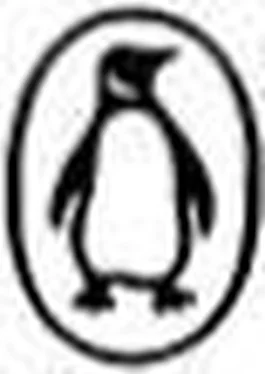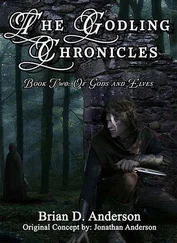Davidson, H. - Gods and Myths of Northern Europe
Здесь есть возможность читать онлайн «Davidson, H. - Gods and Myths of Northern Europe» весь текст электронной книги совершенно бесплатно (целиком полную версию без сокращений). В некоторых случаях можно слушать аудио, скачать через торрент в формате fb2 и присутствует краткое содержание. Жанр: Старинная литература, на английском языке. Описание произведения, (предисловие) а так же отзывы посетителей доступны на портале библиотеки ЛибКат.
- Название:Gods and Myths of Northern Europe
- Автор:
- Жанр:
- Год:неизвестен
- ISBN:нет данных
- Рейтинг книги:5 / 5. Голосов: 1
-
Избранное:Добавить в избранное
- Отзывы:
-
Ваша оценка:
- 100
- 1
- 2
- 3
- 4
- 5
Gods and Myths of Northern Europe: краткое содержание, описание и аннотация
Предлагаем к чтению аннотацию, описание, краткое содержание или предисловие (зависит от того, что написал сам автор книги «Gods and Myths of Northern Europe»). Если вы не нашли необходимую информацию о книге — напишите в комментариях, мы постараемся отыскать её.
Gods and Myths of Northern Europe — читать онлайн бесплатно полную книгу (весь текст) целиком
Ниже представлен текст книги, разбитый по страницам. Система сохранения места последней прочитанной страницы, позволяет с удобством читать онлайн бесплатно книгу «Gods and Myths of Northern Europe», без необходимости каждый раз заново искать на чём Вы остановились. Поставьте закладку, и сможете в любой момент перейти на страницу, на которой закончили чтение.
Интервал:
Закладка:
NIFLHEIM: The abode of darkness, beneath the roots of the World Tree
NJÁLS SAGA: Also called Brennu-Njáls Saga . Longest and most famous of the Icelandic family sagas, the story of the burning of the Icelander Niall and his family (translated by Bayerschmidt and Hollander, Allen & Unwin, 1956)
NJORD (NJǪRðR): God associated with ships and the sea. The father of Freyr and Freyja, and one of the Vanir
NORNA-GEST (NORNA-GESTR): ‘Stranger of the Norns’. Hero of a tale inserted into Olaf Tryggvason’s saga in Flateyjarbók (translated by N. Kershaw, Stories and Ballads of the Far Past , Cambridge University Press, 1921)
OD (ÓðR): Husband of Freyja, who deserted her
ODIN (ÓðINN): Leader of the Aesir, god of battle, inspiration, and death
OLAF ELF OF GEIRSTAD: Oláfr Geírstaðaálfr . Early king in Vestfold, Norway, to whose burial mound men sacrificed after his death
OLAF THE HOLY: St Olaf, great Christian king of Norway, 1016–30
OLAF TRYGGVASON: King of Norway 995–1000, who set out to convert the country to Christianity
OROSIUS: Paulus Orosius, author of Historiae adversum Paganos , a history of the world, in the fifth century A.D.
ǪRVAR-ODDS SAGA: One of the legendary sagas in the Fornaldar S Ǫ gur collection, the story of the hero Odd and his travels abroad
OTTER (OTR): Son of Hreidmar, killed by Loki
OTTAR THE SIMPLE (OTTARR HEIMSKI): A worshipper of Freyja, helped by her to discover his ancestry, as told in the Edda poem Hyndluljóð
PAUL THE DEACON: Paulus Diaconus, author of a history of the Lombards, Historia Langobardorum , in the eighth century (translated by Foulke, New York, 1907)
PHOL: Vol (?). Mentioned with Volla in the 2nd Merseburg Charm, and thought to be a fertility deity
PROCOPIUS: Greek historian of sixth century B.C. who wrote a history of the Gothic Wars
PROSE EDDA: Book about poetic imagery and diction by Snorri Sturluson, containing many myths and quotations (translated by Brodeur, Oxford University Press, 1916, and partially by J. I. Young, Bowes & Bowes, 1954)
RAGNAR LODBROK (RAGNARR LOðBRÓK): ‘Leather-breeks’. Famous hero who slew a dragon, and whose sons conquered England, in Ragnars Saga Loðbrókar , one of the Fornaldar Sǫgur (translated by O. Schlauch, 1949)
RAGNAROK (RAGNARØKR): ‘Destruction of the powers’. Term used to describe the end of the world, when the monsters slay the gods, and Midgard and Asgard are destroyed
RAGNVALD OF ORKNEY (RǪGNVALDR): Famous Earl of the Orkneys, 1135–58, poet and adventurer
RAGNVALD RETTILBEINI (RǪGNVALDR): Son of Harald Fairhair of Norway, who practised witchcraft and was finally put to death by his father
RAN: Wife of the sea god Aegir, who catches drowned seamen in her net, and gives them hospitality in her halls
RAGNARSDRÁPA: Ninth-century poem by Bragi Boddason about the gods
RATATOSK (RATATOSKR): Squirrel who runs up and down the World Tree
RAUD (RAUðR): Worshipper of the heathen gods, especially Thor, in Northern Norway, put to death by Olaf Tryggvason
REDWALD (RÆDWALD): King of East Anglia in the seventh century, who was partially converted to Christianity
REGIN (REGINN): Famous smith, son of Hreidmar, who slew his father and helped Sigurd the Volsung to slay his brother Fafnir, the dragon
RÍGSÞULA: Poem in the Edda , telling how Rig (thought to be Heimdall) fathered the different classes of men
RING (HRINGR): Nickname of Sigurd, King of Sweden, who defeated Harald Wartooth of Denmark in Saxo’s account
ROSKVA (RǪKVA): Farmer’s daughter who went with Thor to the hall of Utgard-Loki
SAX NOT: (Seaxneat to the Anglo-Saxons.) ‘Sword-companion’(?). God worshipped by the Old Saxons, and remembered as ancestor of the kings of Essex
SAXO GRAMMATICUS: Danish antiquarian of twelfth century who wrote a history of the Danes ( Gesta Danorum ), the first nine books of which contain much mythological material (translated by Lord Elton, Folklore Society, 1894)
SCEAF: Child who came over the sea to rule in Denmark, according to William of Malmesbury
SCYLD SCEFING: First king of the Danes according to Beowulf , who came over the sea and was set adrift in a ship after death
SEIðR: Form of magic and divination, said to be originated by Freyja
SIDONIUS: Sidonius Apollinaris, Bishop of Clermont, who left a number of Latin poems and letters, written in the fifth century (translated by W. B. Anderson, Heinemann, 1936)
SIF: Wife of Thor, with wonderful golden hair
SIGNY: Daughter of Sigar, king of Denmark, who loved Hagbard, the slayer of her brothers, and killed herself when he was put to death by her father, according to Saxo’s account
SIGMUND (SIGMUNDR): (Sigemund in Anglo-Saxon tradition.) Famous hero, father of Sigurd the Vǫlsung
SIGRDRÍFUMÁL: Poem in the Edda , containing magic lore spoken by Sigrdrifa, a Valkyrie
SIGRUN (SIGRÚN): Valkyrie, lover of Helgi Hundingsbani, who is said to be an earlier Valkyrie, Svafa, reborn
SIGURD THE VOLSUNG (SIGURðR): Also called Fáfnisbani, slayer of Fafnir the dragon. Famous hero of the Volsung family
SIGVAT (SIGVATR ÞORDARSON): Icelandic poet of early eleventh century
SIGYN: Wife of Loki who tended him when he was bound under the earth
SKADI (SKAðI): Daughter of Thiazi the giant, who married Njord, but left him to go back to the mountains
SKÁLDSKAPARMÁL: ‘Poetic diction’. Second section of Snorri’s Prose Edda , containing many of the myths used by poets
SKEGGI (JÁRNSKEGGI): Worshipper of Thor in Trondheim, Norway, killed by Olaf Tryggvason
SKIALF (SKIÁLF): Wife of Agni of Sweden, who caused his death
SKÍðBLAðNIR: Magic ship of Freyr
SKIOLD (SKJǪLDR): Son of Odin, who ruled over Denmark and married Gefion. Ancestor of Danish kings
SKÍRNIR (SKÍRNIR): Servant of Freyr, went to woo Gerd for him, according to Edda poem Skírnismál
SKJǪLDUNGA SAGA: Lost saga about early legendary kings of Denmark, surviving in sixteenth-century Latin version
SLEIPNIR: The eight-legged horse of Odin
SNORRI STURLUSON: Icelandic writer, who lived c . 1179–1241, author of the Prose Edda and Heimskringla
SǪGUBROT: Fragmentary history of the Danish kings, in Icelandic MS. of about 1300
SOLOMON AND SATURN: Anglo-Saxon poem in dialogue form
SONATORREK: ‘Loss of the sons’. Ninth-century poem by Egill Skallagrímsson (translated by N. Kershaw, Anglo-Saxon and Norse Poems , Cambridge University Press, 1922)
STARKAD (STARKAðR): Famous hero who comes into the legendary sagas and Saxo’s history
STRATEGICON: Sixth-century Greek treatise on warfare
STRABO: Greek geographer, who described a number of the German tribes in the first century
SURT (SURTR): A fire giant from Muspell who burns earth and heaven
SUTTUNG (SUTTUNGR): Son of the giant Gilling, who took back the mead of inspiration from the dwarfs who killed his father
SVAðILFARI: Sagacious horse of the giant who built the wall round Asgard; the sire of Sleipnir
SVEIN: King of Denmark, father of Canute, who conquered England 1014
SVIPSDAGSMÁL: Poem in the Edda about the supernatural journey of Svipdagr to woo Menglad. Also known as Grógaldr and Fjǫlsvinnsmál
TACITUS: Roman historian, who lived A.D. 55–118. The Histories, Annals , and Germania , are three of his major works
THIALFI (ÞJÁLFI): Farmer’s son who went with Thor to Utgard
THIAZI (ÞJÁZI): Giant who stole Idun and her apples of youth, and was slain by the gods when he chased Loki back into Asgard
Читать дальшеИнтервал:
Закладка:
Похожие книги на «Gods and Myths of Northern Europe»
Представляем Вашему вниманию похожие книги на «Gods and Myths of Northern Europe» списком для выбора. Мы отобрали схожую по названию и смыслу литературу в надежде предоставить читателям больше вариантов отыскать новые, интересные, ещё непрочитанные произведения.
Обсуждение, отзывы о книге «Gods and Myths of Northern Europe» и просто собственные мнения читателей. Оставьте ваши комментарии, напишите, что Вы думаете о произведении, его смысле или главных героях. Укажите что конкретно понравилось, а что нет, и почему Вы так считаете.












